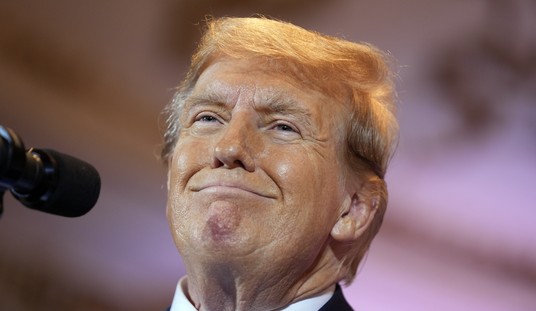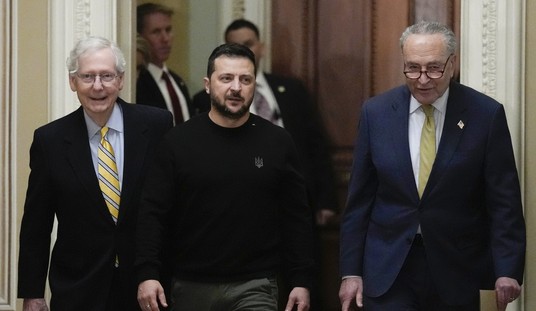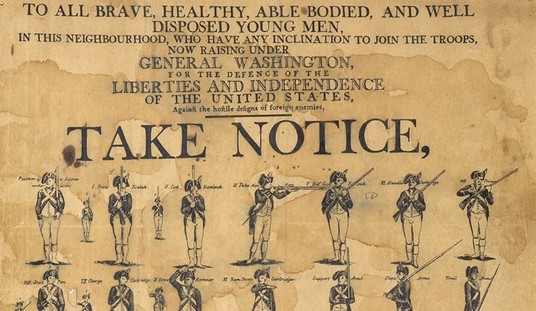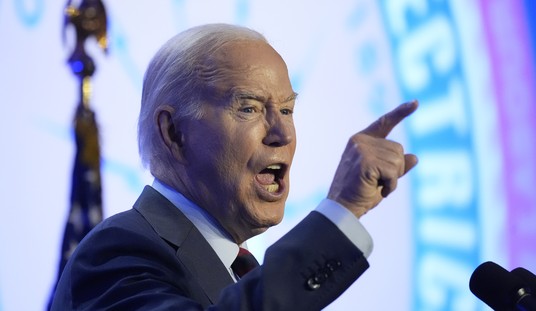I’ve always believed a key insight to public thinking about health-care reform is that they don’t want to think of it like any other free-market product, including the examples we might hold up as competitive success stories. People don’t go bargain-hunting for health care with quite the same gusto that they’ll bring to the quest for a new car, or even a new pair of shoes. The end result is not a purchase to be cherished, but something more akin to a fine levied unfairly against those who have the misfortune to grow ill. When you need a doctor, you’ve basically lost the lottery of doom, and from a financial standpoint, you just want the penalty to be as small as possible. You’re looking to minimize your losses, not hit Facebook to tell your friends about the great deal you got on a colonoscopy.
Jim Geraghty at National Review was thinking along these lines when he explained why people might not be too upset by the way ObamaCare restricts their choices, which were not unlimited under the previous model of health insurance:
There’s a reason most Americans were comfortable, if not thrilled, getting health insurance through their employer: the choices are limited, and it’s easier to pick among three plans offered through your employer than the multitude of plans offered on the market. There’s a school of thought that while we like a lot of choices in theory, in practice we find too many options confusing and get paralyzed by indecision.
[…] The point is that many people find making a decision more difficult when they have a lot of choices. I just plugged information into ehealthinsurance.com and found 18 plans priced from about $500 to $1500 per month. Picking a plan requires evaluating trade-offs (Do I want a higher monthly premium in exchange for a lower deductible?) and weighing a lot of unknowns (Am I going to need a lot of coverage in the future? What if I pay a lot and never need it? What if I don’t reach my deductibles most years?).
However, the ideal of choice remains very powerful – it’s one of the most commonly used, and abused, words in our political vocabulary. The abortion movement, for example, is very insistent on being referred to as “pro-choice,” even though they clearly disdain – and are sometimes actively hostile toward – the choices made by women who keep their children, and have no regard for the “choices” that might be made by the aborted child. It is extremely useful for them to portray their opponents as “anti-choice,” knowing that people are hard-wired to resent efforts at controlling their lives.
But modern liberalism is all about controlling lives, particularly the monstrous collection of mandates, prohibitions, and compulsory spending known as the Affordable Care Act. A great deal of its complexity stems from the effort to keep an illusion of choice alive. That’s one reason the currently fashionable Administration spin of dismissing the inert Healthcare.gov website as no big deal is so ridiculous. On the contrary, the website was hammered relentlessly as one of the key features of the program over the course of the past three years. The government was going to do us all a great service by gathering our health-care choices into a single, easy-to-use, super-fast online portal. An ocean of taxpayer money was spent on propaganda for the Internet generation that did little but talk about the wondrous ObamaCare website. It was going to be just like ordering a pizza online.
Somewhere in the dim recesses of Democrat politics, the hard-core socialists are grousing that none of this would be happening if we just had the Soviet-style single-payer no-choices health are plan they really want, instead of wasting a decade on this doomed-to-fail hybrid public/private system. You don’t need all those interacting databases and zillions of lines of buggy, ineptly-written Web code if the Ministry of Health simply assigns people to government-controlled doctors – reserving the very best for the Ruling Class and their special friends, of course – and the people obey those instructions without question. Obedience doesn’t require billion-dollar advertising campaigns, flustered navigators, or online shopping networks.
But all of this was necessary to fool the American people into accepting the single-payer nightmare, because they still cling to the idea of choice as an essential component of their freedom and dignity. They have to be tricked into seeing the government as the senior partner in a conglomerate that will offer them the level of service and innovation they expect from private industry. When the private-industry components of this endeavor fail, only the government control will remain, and a transformed nation will at last be ready to take the final, fatal step. It just wasn’t supposed to fail this quickly.
Maybe some of us are confusing the virtues of choice with those of competition. The two are distinct but related concepts. Competition does not exist without meaningful choice. No one competes for your business until they face the very real possibility that you might choose a competitor. But it is possible to grant people a set of carefully controlled choices without harnessing the true power of competition. What remains is a hollow simulacrum of the free market. The magic is missing.
It’s not a real competition unless customers have the option to walk away. The power to withdraw consent, to say “no,” is amazing. There is no substitute. It’s the only way to guarantee innovation and efficiency. No captive audience is ever served as well as one that knows its way to the exits.
It’s not a truly spirited competition when the competitors are artificially limited. Every student of economics learns that restricting access to markets leads to higher prices, reduced quality, and less innovation. That’s a major reason we empower the government to thwart anti-competitive practices from private monopolies. But it’s a lesson politicians expect us to forget when they want the government to become the monopoly.
We were told the government can manage the health-care industry more wisely and efficiently than free-market competition. That is obviously not true. The ObamaCare launch disaster proves it without question, and not just because private industries don’t spend $400 million to produce non-functional websites that get launched over the muffled screams of anguished beta testers. The structural flaws within ObamaCare are perversions of market forces, including the simple actuarial reasoning that allows insurance companies to manage risk for a profit. Instead of fumbling around for patches, delays, and Band-Aid fixes to keep the ObamaCare disaster rolling, we should scrap it completely and head in the opposite direction, removing the government-imposed obstacles that frustrate competition – from the silly restrictions against selling insurance across state lines, to the treatment of insurance as a benefit to be dispensed by employers, rather than the property of its consumers. After all, it’s not much of a competition if the judges – the consumers – can’t see the action clearly and keep score.
Choice is great. Unrealistic, unsustainable choices are worthless. Freedom, mutually exercised by all citizens, requires honest information to fuel voluntary choice. And the only way to get honest information is to let competitors slug it out until only those who can deliver the goods remain standing. You’re better off with a handful of fair choices provided by battle-hardened competitors eager to win your business – and keenly aware that they could lose it – than a wide range of fantasies created by mixing dizzy bureaucratic mandates with appalling taxpayer subsidies.














Join the conversation as a VIP Member